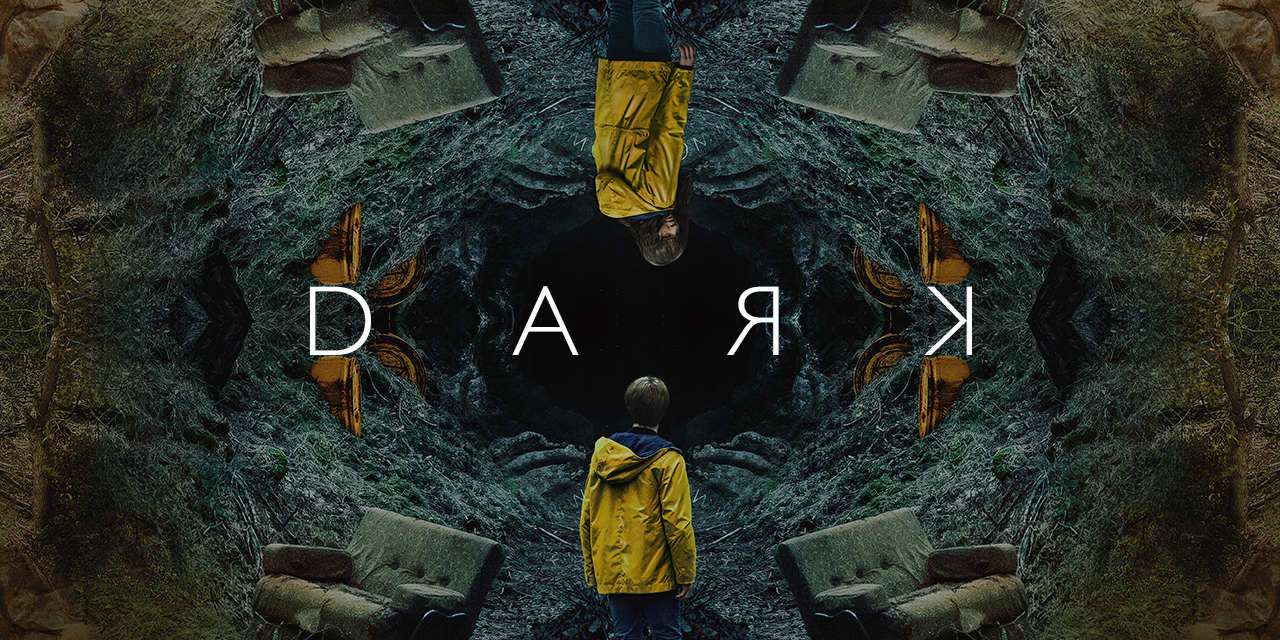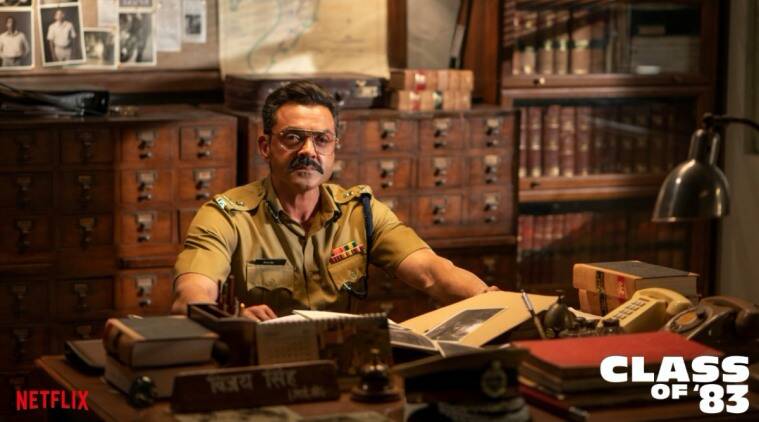[Minor Spoilers Ahead: may actually help you to understand the story]
Dark was first launched in 2017. But I have not felt interested until last few months back. I am a “thriller/suspense” genre person. This kind of series normally attracts me.
It is a German Sci-fi thriller genre 3 season series being streamed on Netflix. The first season is really great. It creates suspense and excitement to unearth the story. The storyline is of a black hole that takes you 33 years backwards and forward. A scientist actually creates it to save the lives of his son and daughter-in-law. There is also a nuclear power plant which is somehow an important part of the story too.
The black hole changes the life of a few families of the town. Not only a few families of one generation but the life of quite a few generations. Although many scientific theories like a black hole, time travel, a parallel universe are there, at the end it is a story of human lives connected with each other.
The first two seasons very engaging. But I haven’t much enjoyed the last season. If you only watch the first episode and last episode of the 3rd season, you will get to know the whole story. You will not need to watch the middle ones because, I felt, it is mostly repetitive.
If you have a somewhat basic understanding of the terms like a black hole, a parallel universe and time machine, you will be able to understand the gem of it. Otherwise, it will be a boring series for you.
My Review: Masterpiece for Geeks / 4.5 out of 5.
Season 1:
The first season of “Dark” was a “mind-fuck” (not sure if that’s even a word!), but let me tell you, I have never seen such a unique storyline before. It starts with a small-town mystery about a missing boy, but gradually opens up into this mind-blowing concept of time travel. If you’re not focused, everything will mix up in your head!
In our usual shows, the plot becomes predictable, but “Dark” is nothing like that. The characters, Michael, Jonas, Ulrich, all have so much depth, and their connections slowly unfold. It feels like solving a puzzle. By the end of the season, I realized this is not just a series, it’s a mental challenge. Honestly, I loved it, even though my brain was fried trying to keep track.
| Episode | Review |
|---|---|
| 1. “Secrets” | Winden wakes up in the rain. Director Baran bo Odar drenches every frame in dread, lighting basements like confessionals. Mikkel disappears and so does any illusion that this is just a missing-kid story. Keep an eye on the cave mouth; it stares back. |
| 2. “Lies” | Smalltown gossip turns forensic as neon raincoats and police tape frame a decades-old echo. The writers feed us clues the way the cave spits out clocks broken, yet ticking. |
| 3. “Past and Present” | Old photographs warp into portals; Stranger Things this is not. The split-screen rhythm between 1986 and 2019 is edited like a jump-scare you never see coming. Hannah’s smile? Sharper than any time machine’s edge. |
| 4. “Double Lives” | Choir music howls through nuclear towers; couples combust in motel rooms. The duality motif risks feeling academic, but Odar’s staging sells the mirror trick. |
| 5. “Truths” | Finally, bootstrap paradoxes hit the dialogue—and somehow the tension increases. Cinematographer Nikolaus Summerer bathes the forest in flashlight beams so thin they’re surgical. |
| 6. “Sic Mundus Creatus Est” | A Latin motto with blood under its fingernails. The secret society reveal might have toppled a lesser show, yet Dark plays it like a low cello note: foreboding, not flashy. |
| 7. “Crossroads” | The Doyle-esque whodunit abandons motive and hunts for when. Editing weaves 1953 into 1986 into 2019 without a visible seam; still, the exposition load begins to creak. |
| 8. “As You Sow, So You Shall Reap” | Doppler’s bunker morphs into a confessional booth. Performances (especially Karoline Eichhorn as Charlotte) cut deeper than any genre twist. |
| 9. “Everything Is Now” | Montage mania: pocket watches, dead birds, glowing barrels. For the first time, the show teeters on overload, but that cliff-hanger- Martha’s wide eyes- yanks us back. |
| 10. “Alpha and Omega” | A season finale that detonates quietly: one door slams, another opens onto 2052. It’s less resolution than escalation, yet utterly earned. |
Season 2:
Season 2 was even crazier! It got more confusing, but also more thrilling. Slowly, the duality of every character became clear. Past, present, future: they’re all connected like threads in a web. The town of Winden feels like a parallel universe itself. Jonas’s character development here was insane.
By this season, it became clear that time travel is not just about seeing the future or the past- it’s about being stuck in a dangerous, never-ending loop. And Marta’s death… bro, that was a total shock! It’s the kind of moment that makes you pause the episode and just stare at the screen.
| Episode | Review |
|---|---|
| 1. “Beginnings and Endings” | Six months later, Jonas stalks a wasteland wearing yellow like a hazmat saint. The production design scales up without losing intimacy. |
| 2. “Dark Matter” | 1921 enters the chat. Show-runners Jantje Friese & Odar juggle three centuries now; miraculously, coherence holds—though casual viewers may hit pause for flowcharts. |
| 3. “Ghosts” | Helge’s refrain—“It will happen again”—returns like a curse. The score by Ben Frost thumps like an arrhythmic heart, almost drowning dialogue (deliberately). |
| 4. “The Travelers” | 2053 and 1921 braid together; betrayals taste metallic. Some side plots (Magnus/Franziska) still feel under-seasoned, but the central paradox gleams. |
| 5. “Lost and Found” | Time loops as character therapy: Ulrich confronts Ulrich. The writing flirts with melodrama yet yanks back into horror via that single hammer blow. |
| 6. “An Endless Cycle” | Mid-season crescendo. A scene with two Jonases across a motel bed is staged like a Greek tragedy—fatalism rendered tender. |
| 7. “The White Devil” | The origin of Noah’s scar slices through subplots. Editing whirls, viewer sanity wobbles, but the show’s confidence is absolute. |
| 8. “Endings and Beginnings” | The apocalypse lands—and then the camera whispers parallel worlds. A finale that drops jaws without cheapening earlier mysteries. |
Season 3:
Season 3 is on a whole other level. Now they introduced an alternate universe, and honestly, it took me so long to wrap my head around it. The whole Adam and Eva concept was mind-blowing, but at the same time, it made my brain overheat! Now we see everything depends on one single origin point.
The loop in Winden is like a curse that destroys everyone’s lives. The ending was totally satisfying, though I still have so many questions. This series isn’t just for entertainment—it’s like a brain workout. Time travel isn’t as cool as it seems; it’s terrifying!
| Episode | Review |
|---|---|
| 1. “Deja-vu” | Alt-Winden: traffic lights switch sides, loyalties reverse. The set decorators relish micro-differences; blink and you’ll miss the town’s moral compass spinning. |
| 2. “The Survivors” | Dual Marthas paint yin-yang onto the apocalypse canvas. The script courts soap-opera angst but rescues itself with crushing inevitability. |
| 3. “Adam and Eva” | Religion meets quantum physics. The reveal of who built the time machine lands like thunder in a library—shocking and scholarly. |
| 4. “The Origin” | The creepiest family-tree branch ever put on screen. Casting for the aged/young/child trio is uncanny; makeup, impeccable. |
| 5. “Life and Death” | Kill loops and love loops collide. A hallway scene choreographed in literal reverse angles riffs on Nolan yet feels wholly Dark. |
| 6. “Light and Shadow” | Shadow Jonas storms the Time Device HQ. Action beats (rare for the series) prove thrilling, though a certain exposition monologue stalls momentum. |
| 7. “Between the Time” | The penultimate hour slows, letting grief breathe. A candlelit montage wordlessly reminds us the show is, beneath all theory, a requiem for stolen childhoods. |
| 8. “The Paradise” | Endgame. The writers gamble on metaphysics plus catharsis—and win. Some viewers may find the resolution too tidy; others will weep into infinity. Either way, the knot unravels in a poetry of dying light. |
Personal Thoughts:
After watching “Dark,” one thing I can say is this: if we had stories like this in our industry, it would completely change everything. This series demands your full attention, like solving a complex math problem. In Bangladesh, we need original ideas like this.
“Dark” isn’t just a show; it’s a journey—about time travel, love, loss, and being stuck in a never-ending cycle. Jonas’s character really made me emotional. And while the ending was fulfilling, I still wonder, “Couldn’t things have turned out differently in Winden?”
Overall, “Dark” is a masterpiece. I’d give it 10/10. But here’s a tip: before you start, drink some tea and focus hard—you’ll need it!

